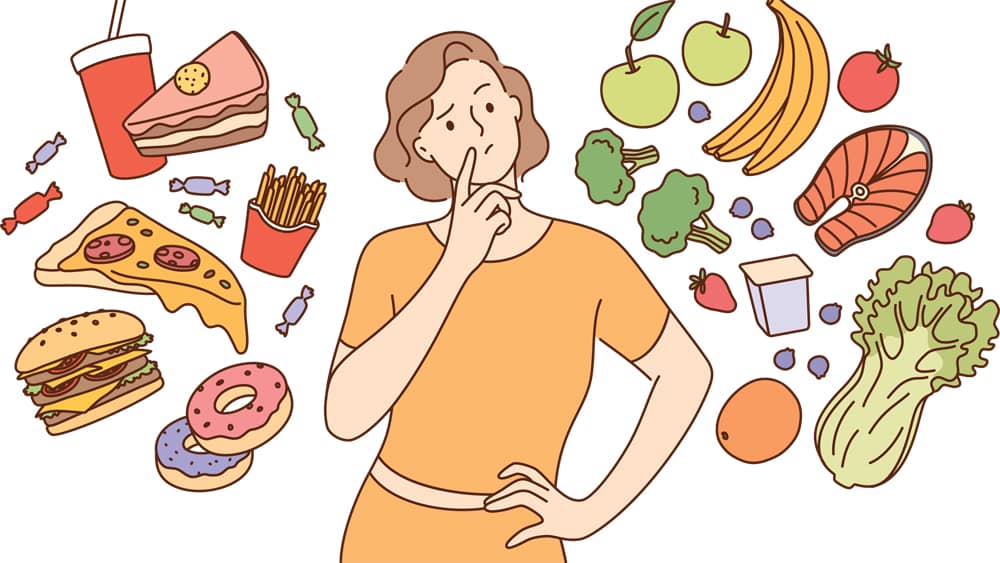
The uncertainty that the last two years have brought to our lives is significant enough for even the calmest to be rattled. It has made some of us a little more irritable, and maybe more critical or less tolerant. These are signs of anxiety. As the pandemic continues, it’s important to recognize these symptoms in others and more importantly, in ourselves.
Recognizing the emotion we experience in each moment is important. It’s relevant because it influences the decisions we make and the quality of the interactions we have with each other. It influences the lens in which we see what’s in front of us. The lens can be colored with anger and disappointment or with gratitude and happiness. The emotion that is affecting us will have a strong influence on the type of decisions we are making.
Let’s take, for example, our food choices. We know the foods that give us pleasure and make us feel better. But mindless eating can lead to extra calories and weight gain. The opposite of that is mindful eating.
We crave certain foods when we are down or when we are happy. Foods that provide comfort tend to be high in sugar and carbohydrates. Foods rich in carbohydrates and sugar are very comforting for a physiological reasons. Carbohydrate-rich foods allow amino acids such as tryptophan to be taken up in the brain. Tryptophan is converted to serotonin in the brain. The neurons in the brain communicate via the neurotransmitters such as serotonin. Depression and anxiety are related to low serotonin levels. Serotonin is important in stabilizing mood, promoting a feeling of happiness and causing a sense of well-being.
Foods such as chocolate, ice cream and French fries cause a serotonin surge in the brain, which causes a momentary sense of well-being. Antidepressants such as escitalopram, sertraline and others belonging to the SSRI class also increase serotonin. When we eat foods that are comforting, we are medicating a certain emotion.
When we need a break and choose to go for a walk or exercise, we are treating an emotion. Physical activity releases endorphins, which are like endogenous cannabinoids. Endorphins reduce the perception of pain, trigger positive feelings in the body. Other neurotransmitters, dopamine, norepinephrine and serotonin are also released when you exercise. Dopamine helps us feel pleasure, while norepinephrine affects our ability to concentrate.
The SNRI class of medications increases norepinephrine and serotonin and is prescribed to treat depression, anxiety, obsessive-compulsive disorder (OCD) and attention-deficit/hyperactivity disorder (ADHD) symptoms.
In 1999, a randomized study was conducted with people with depression age 50-plus by Duke University. The men and women in the study were split into two groups. One group has prescribed an antidepressant; the other group participated in an aerobic exercise program. Four months later, the mood of the patients in the exercise group was comparable to the group that took medication, and they were considered no longer depressed. Exercise is a powerful mechanism to promote well-being.
An individual’s choice of food and desire to engage in physical activity are often a result of the body’s physiological need. The human body has an inbuilt mechanism to promote well-being, based on the emotions a person is feeling.
As the pandemic lingers, taking the time to identify your emotions can help you better understand the choices you’re making. If you don’t have time to identify your emotion, then look at the choices you’re making and that may alert you to how you are feeling. Being aware of the predominant emotion you’re experiencing is an important step to improve well-being.
Rajina Ranadive, M.D., is a board-certified internal medicine physician with Providence Santa Rosa Memorial Hospital. She is also the medical director at the Petaluma Post-Acute Rehab and Vineyard Post Acute. She can be reached at (707) 763-9891.
Author
-

Rajina Ranadive, M.D., is a board certified internal medicine physician with the St. Joseph’s Medical Group. She is also the medical director of the Petaluma Post-Acute Rehab. She can be reached at (707) 763-0802.
View all posts



